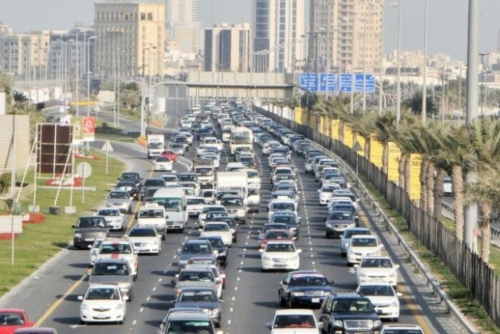Bahrain has taken a significant step forward in addressing its traffic challenges with the issuance of Edict (56) of 2024 by His Royal Highness Prince Salman bin Hamad Al Khalifa, the Crown Prince and Prime Minister. This directive establishes structured internal regulations for the Traffic Council, chaired by the Minister of Interior, to create a coordinated framework to address ongoing traffic concerns. The Traffic Council will convene every six months, with the possibility of additional meetings to tackle urgent issues. Emphasis is placed on confidentiality to allow Council members to work effectively on initiatives to improve Bahrain’s roadways. Decisions will be made by majority vote, with the Chairman having the authority to cast a tie-breaking vote for swift and decisive action.
In order to facilitate the work of the Council, provisions for remote participation and electronic voting have been put in place to ensure continuity and flexibility in decision-making. A Technical Committee will also be formed within the Council, led by the Director-General of the General Directorate of Traffic, to address issues referred by the Council and recommend effective solutions based on research. The Council may form additional committees and consult external experts to gain insights on complex traffic matters. The Traffic Council Secretary will manage notifications, agendas, documentation of meetings, and follow-up on Council resolutions. An annual report will detail the Council’s actions, achievements, and future recommendations to ensure transparency and accountability.
The establishment of Bahrain’s new Traffic Council framework marks a strategic response to the country’s traffic congestion, with the aim of creating smoother and safer roads. Through a structured and expert-driven approach, the Kingdom is seeking to enhance public safety, improve traffic flow, and support economic growth by creating a more efficient transportation network. This initiative demonstrates the government’s commitment to addressing the challenges faced by Bahrain’s traffic system and signals a concerted effort to find effective solutions through collaboration and expert input.
By introducing a structured framework for addressing traffic concerns, Bahrain is taking proactive steps to improve its roadways and ensure the safety and efficiency of its transportation network. The establishment of the Traffic Council with defined regulations and procedures for decision-making will enable timely and effective action to address urgent issues and improve traffic flow. The inclusion of a Technical Committee within the Council, as well as provisions for remote participation and electronic voting, demonstrates a commitment to utilizing expertise and technology to drive solutions and recommendations for enhancing Bahrain’s traffic infrastructure.
The systematic approach outlined in Edict (56) of 2024 reflects the government’s recognition of the importance of addressing traffic challenges in Bahrain. By setting up a structured framework for the Traffic Council and incorporating mechanisms for consultation and research-based recommendations, the Kingdom is positioning itself to make significant improvements in reducing congestion, enhancing public safety, and supporting economic growth. The commitment to transparency and accountability through annual reporting and documentation of Council activities underscores the government’s dedication to addressing traffic concerns in a comprehensive and effective manner.
Overall, the establishment of the Traffic Council framework in Bahrain is a positive step towards addressing the country’s traffic challenges and creating a safer and more efficient transportation network. By bringing together key stakeholders, utilizing expertise, and implementing structured decision-making processes, Bahrain is positioning itself to make meaningful improvements in traffic management and infrastructure. Through ongoing collaboration and a commitment to transparency, the Kingdom is taking proactive measures to enhance public safety, improve traffic flow, and support economic growth through a more effective and sustainable transportation system.











